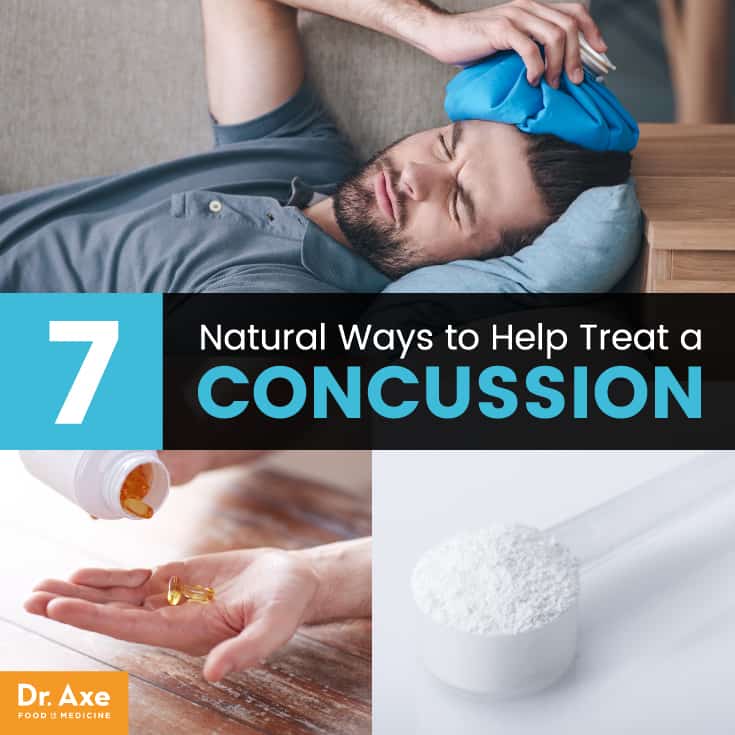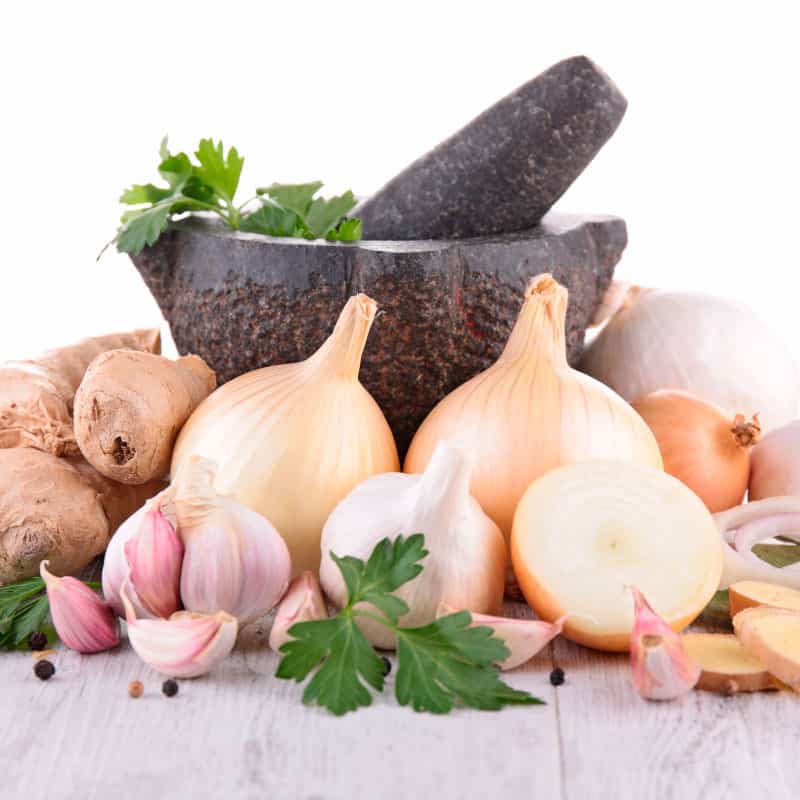This Dr. Axe content is medically reviewed or fact checked to ensure factually accurate information.
With strict editorial sourcing guidelines, we only link to academic research institutions, reputable media sites and, when research is available, medically peer-reviewed studies. Note that the numbers in parentheses (1, 2, etc.) are clickable links to these studies.
The information in our articles is NOT intended to replace a one-on-one relationship with a qualified health care professional and is not intended as medical advice.
This article is based on scientific evidence, written by experts and fact checked by our trained editorial staff. Note that the numbers in parentheses (1, 2, etc.) are clickable links to medically peer-reviewed studies.
Our team includes licensed nutritionists and dietitians, certified health education specialists, as well as certified strength and conditioning specialists, personal trainers and corrective exercise specialists. Our team aims to be not only thorough with its research, but also objective and unbiased.
The information in our articles is NOT intended to replace a one-on-one relationship with a qualified health care professional and is not intended as medical advice.
Concussion Treatment: 7 Natural Ways to Treat a Concussion
November 23, 2017

Millions of people in the United States suffer from a concussion each year due to motor vehicle accidents, falls, assault and taking part in sports. With lawsuits pending against the NFL and NHL over the long-term consequences of multiple concussions, athletes are considered the most at risk, particularly if they participate in football, hockey, basketball, soccer, cheerleading, wrestling, boxing or cycling.
The University of California Brain Injury Research Center states that somewhere between 1.6 million and 3.8 million sports-related concussions happen each year in the United States. And, their research shows that the majority of these injuries occur in teen athletes. (1)
Read on to learn about the symptoms of concussion plus the key aspects of concussion treatment.
What Is a Concussion?
A mild traumatic brain injury (TBI) is called a concussion. This injury typically occurs due to a blunt force trauma; however, a penetrating trauma can cause concussions too. A concussion happens when the brain bounces inside the skull; this can cause contusions, bruising and even bleeding. A thorough examination and monitoring are necessary first steps in concussion treatment, or after any head trauma. The first 24 hours after the injury are crucial. (2)
Losing consciousness is a symptom of a concussion, but the loss of consciousness is not the only determining factor. Medical concussion treatment should be sought as quickly as possible after any whiplash-like event, fall or abuse.
In the hours following an injury, subdural and epidural hematomas, contusions and edema may develop, and it is imperative that patients are monitored closely.
The most common signs of a concussion in healthy adults and teens include: (4, 5)
- Temporary loss of consciousness
- Headache
- Feeling of pressure in the head
- Ringing in the ears
- Confusion or brain fog
- Memory loss surrounding the event
- Nausea or vomiting
- Slurred speech
- Fatigue
- Delayed response to stimuli
- Appearing dazed
- Mood and personality changes, including irritability and depression
- Sensitivity to noise and direct light
- Neck pain
- Uncharacteristic clumsiness
A Note About Concussions in Infants, Children and Seniors
The vast majority of people who have a concussion will recover completely in a few days or weeks; however, serious complications can occur in the elderly, infants, children, and those who have experienced multiple concussions. It’s important to be familiar with the signs and symptoms of concussions in each of these groups as they can all present differently.
Concussion Treatment: 7 Natural Remedies
Concussion treatment focuses on making the person comfortable, alleviating headaches and getting plenty of physical and mental rest. Below are seven natural remedies for concussion treatment. Other natural concussion treatment options to help recovery include diffusing lavender oil and other stress-reducing essential oils and participating in music therapy.
- Sleep and rest
- Light exercise
- Fish oil
- Creatine
- Turmeric
- Antioxidant-rich foods
- Caffeine
1. Sleep and Rest. It takes time for the brain to heal after a concussion. In addition to physical rest and plenty of sleep, the brain needs to be mentally rested as well. For that reason, reading, playing video games, using the computer or another device should be avoided until all concussion symptoms are gone. Reintroduce technology slowly and if any symptoms occur, discontinue immediately. (8, 9)
This means for children and adults alike, returning to work or school should be introduced slowly, preferably with half-days. If you operate machinery or equipment, climb ladders or scaffolding, or are required to do other tasks that need excellent balance, do not return until you are symptom-free.
2. Light Exercise. As mentioned above, in the immediate days following a brain injury, rest is an imperative part of concussion treatment, and following doctor’s orders is recommended. However, a new study shows that there may be a benefit to adding light activity sooner than originally believed, particularly for children and adolescents. The study looked at over 3,000 students with acute concussions and found that activity within seven days is associated with a reduced risk of persistent postconcussive symptoms. (10)
To be clear, this study does not support children and teens returning to competitive team sports or practices during this period. The study indicates that light aerobic activity that increases as the symptoms of the concussion decrease is generally safe and effective and may protect against ongoing symptoms.
Of special note here: There is recent research that indicates that females take significantly longer — more than four times as long — to heal from a concussion than their male counterparts. Researchers are looking into the reason for this, however, no definite answer is clear. While males typically recover in seven days, it can take females 28 days for concussion symptoms to subside. (11)
3. Fish Oil. In a study published in the journal Advances in Nutrition, researchers found that fish oil supplements may speed healing for those with concussions and other mild TBIs. The researchers encourage further investigation and trials to understand the mechanisms behind using fish oil supplements as a therapy and even preventive measure for sports-related brain injuries. While fish oil is considered safe, if there is any sign of bleeding on the brain, do not take fish oil as it may cause excessive bleeding. (12)
In addition to taking a high-quality supplement, boosting your intake of omega-3 rich-foods may help you to recover more quickly. Great sources of these healthy fats include wild-caught salmon, grass-fed beef, flaxseed, walnuts, tuna and grass-fed dairy. Try my recipe for kid-friendly salmon cakes, which are packed with protein and healthy fats.

4. Creatine. In a study published in the journal Acta Paediatrica, researchers suggest that supplementing with creatine after the diagnosis of a concussion improves several concussion symptoms including amnesia, headache, dizziness and fatigue. The study included children from 1 to 18 years of age, with each child receiving 0.4 grams of creatine for every kilogram of weight. Researchers urge further double-blind studies to determine the role in recovery and the prevention of traumatic brain injury complications. (13)
5. Turmeric. Researchers from the Department of Neurosurgery at the Medical College of Georgia have found that curcumin reduces swelling, pain and oxidative brain injury in mice. Turmeric has been shown to be an effective treatment for depression and inflammation, two common side effects of a concussion. (14, 15, 16)
Sipping turmeric tea while healing supports a healthy immune system and may help to lower inflammation. Eating a healthy diet rich in protein supports brain health; for an added boost of power, try my turmeric scrambled eggs recipe.
6. Consume more Antioxidant-Rich Foods. A study published in the journal Surgical Neurology International found “encouraging results” in the neuroprotective properties of natural compounds in the treatment of concussions and TBIs. Some of the top compounds highlighted in this review are the antioxidant powerhouses mentioned above, including turmeric and creatine, as well as resveratrol and green tea. (17)
To enjoy the benefits of resveratrol, eat red grapes, blueberries, cranberries and pistachios. A cup or two of green tea each day during healing can help cognition, alertness and memory while protecting the brain from oxidative stress and free radical damage.
7. Drink Caffeine. Researchers from the University of Pittsburgh School of Medicine’s Department of Critical Care department have found that caffeine has neuroprotective qualities in patients with traumatic brain injuries. The study published in the Journal of Cerebral Blood Flow & Metabolism indicates that higher caffeine levels are associated with more favorable outcomes in the six months following a brain injury. (18)
Research from around the world shows that coffee, for example, may promote longevity, fight depression, improve heart health and protect against some neurodegenerative diseases. Coffee is also rich in antioxidants, which are known to help reduce inflammation. For those with insomnia or other sleep disorders, consuming caffeine products like coffee and tea earlier in the day can help prevent unwanted sleepless nights. (19, 20)
Causes & Risk Factors
Concussions are caused typically by a blunt-force trauma, penetrating trauma or a whiplash-like event. Recognized risk factors include:
- Participating in contact sports like hockey, football, soccer, martial arts, boxing and wrestling
- Participating in non-contact sports like cycling, cheerleading and baseball
- Drug and alcohol use
- Car accidents
- Falls, particularly in young children and the elderly
- Being physically abused
- Improper use of seatbelts and child safety seats
- Improper use of safety equipment in sports
Conventional Concussion Treatment
Diagnosing a concussion requires a thorough physical examination. The first 24 hours after a brain injury are crucial, and patients require observation either in the hospital or at home. The medical team will want details surrounding the event and information on past head injuries. Imaging scans like a CT or an MRI may be ordered.
Most healthy patients are sent home for observation. It is important to follow care and observation directives exactly. Athletes must be medically cleared prior to engaging in sports and individuals with jobs that require balance and coordination should be cleared prior to returning to work. (21)
Precautions
Research indicates that repeated concussions and traumatic brain injuries are associated with CTE, or Chronic Traumatic Encephalopathy, a degenerative disease all too common in professional hockey and football players. Mild TBIs are also associated with an increased risk of prematurely developing Parkinson’s and Alzheimer’s diseases. (22, 23)
Life-threatening complications are possible, and if any of the following signs of a hematoma appears, call 911 immediately: (24)
- Patient cannot be awakened
- Slurred speech
- Decreased coordination
- One pupil appears larger than the other
- Excessive drowsiness
- Severe weakness or numbness in the body
- Repeated vomiting
- Convulsions or seizures
Key Points
- Concussions affect millions of people in the United States each year.
- Traumatic brain injuries are the leading cause of death and disability in young children and teenagers.
- People who participate in contact sports like hockey, football, soccer and boxing are at an increased risk for a concussion.
- Recognizing symptoms of concussions in young children and teen athletes is imperative and may include changes in personality, headaches, balance issues, changes in eyesight, taste, hearing and smell.
- The CDC’s HEADS UP Resource Center provides free online courses for coaches and clinicians about concussions and head injuries. For young children and teens there are even free games and handouts that encourage kids to speak up about any symptoms they are experiencing. Parents are invited to browse the website and to push for their children’s coaches to engage with the website as well.
7 Natural Remedies for Concussion Treatment
- Sleep and rest
- Light exercise
- Fish oil
- Creatine
- Turmeric
- Antioxidant-rich foods
- Caffeine









